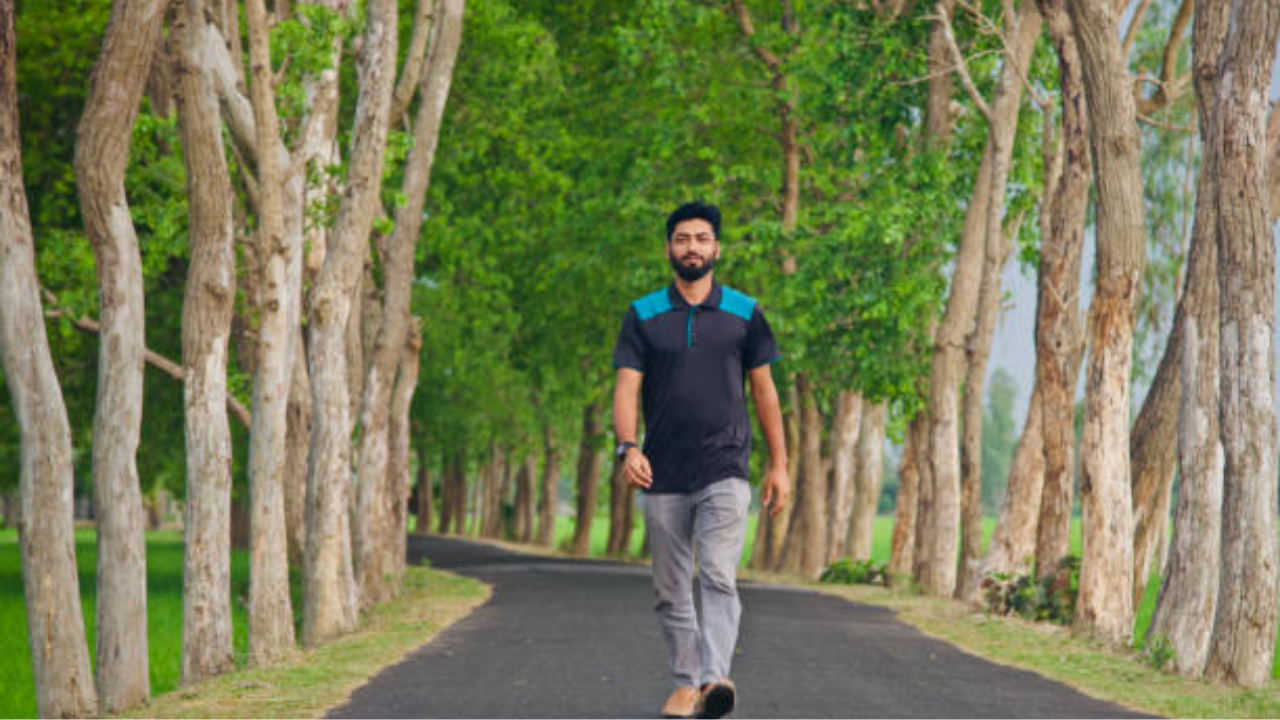The beauty and ease of walking lies in its simplicity—you can start today, no fancy equipment needed.So, lace up your shoes, step outside, and let each stride bring you closer to your weight loss goals.
When it comes to achieving your weight loss goals through walking, you might wonder whether it’s more beneficial to do it in the morning or evening. Both times have their unique advantages and can significantly contribute to weight loss, but the best choice often depends on your personal preferences, lifestyle, and body’s response to exercise.
Walking in the morning kick starts your metabolism and regulates your internal clock
Walking in the morning offers a fresh start to the day, setting a positive tone and boosting your metabolism right from the get-go. Starting your day with a brisk walk can elevate your heart rate and kick-start your metabolism, which means you will continue burning calories at an accelerated rate throughout the day. This early boost not only helps in calorie burning but also improves your mood and energy levels, setting you up for a productive day.
Walking in the morning can lead to better adherence to your exercise routine; when you get your walk done first thing, it’s less likely to be interrupted by the day’s unexpected demands.
Another benefit of morning walks is the impact on your circadian rhythm. Engaging in physical activity early in the day can help regulate your body’s internal clock, leading to improved sleep patterns and overall better health. As a result, you might find yourself sleeping more soundly at night, which is crucial for weight management and overall well-being. Furthermore, the cooler morning temperatures can make your walk more comfortable, especially during hot summer months.
Walking in the evening helps unwind the stress
Walking in the evening has its own set of advantages. After a day of work or other activities, an evening walk can serve as a great way to unwind and de-stress. This post-work stroll can help relieve the day’s built-up tension and provide a mental break, making it a perfect way to transition from the busy pace of the day to a more relaxed evening. For some, exercising later in the day aligns better with their natural energy levels, allowing for more vigorous or longer walks, which can be particularly beneficial for weight loss.
Moreover, evening walks can aid in digestion and prevent late-night snacking. A leisurely walk after dinner helps your body process the meal and may reduce the temptation to reach for unhealthy snacks before bedtime. For those who have difficulty finding time during the morning or feel sluggish early in the day, evening walks offer a flexible and practical alternative. As the sun sets and the temperatures drop, the evening air might be cooler and more pleasant, enhancing your walking experience.
Which one is effective for weight loss?
Both morning and evening walks offer significant benefits for weight loss, but the effectiveness of either largely depends on how well it fits into your routine and how your body responds. The key is to choose a time that aligns with your personal schedule, energy levels, and lifestyle. If you’re a morning person who enjoys the calm start to the day and finds it easier to stick to a routine early on, morning walks might be your ideal choice. Conversely, if you’re more energized later in the day and find evening walks a more relaxing end to your day, this might be the better option for you.
How yoga elevates overall well-being
It’s important to remember that consistency is crucial for weight loss. Regardless of whether you choose to walk in the morning or evening, the most significant factor is to maintain a regular walking routine. Incorporating walking into your daily life, combined with a balanced diet and healthy lifestyle choices, will yield the best results in your weight loss journey.
Ultimately, the most effective time to walk is the time that fits seamlessly into your daily life and makes you feel good. Whether it’s the sweet morning air or the calming evening breeze, the key is to embrace walking as a regular part of your routine. So, grab your walking shoes and get moving—your body will thank you for it!






